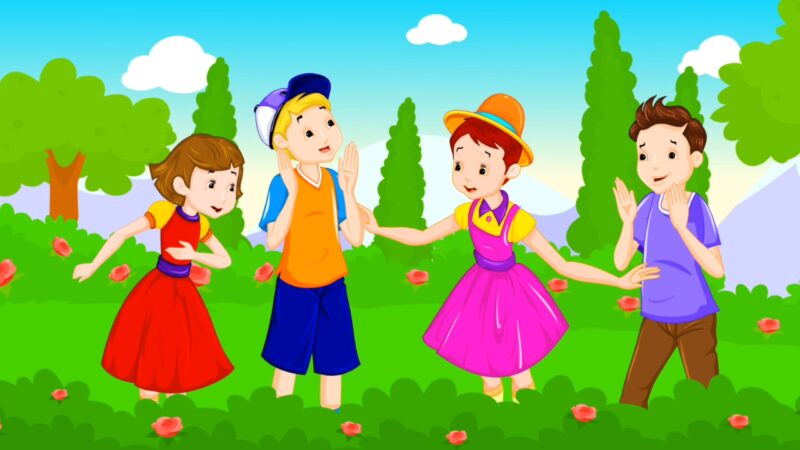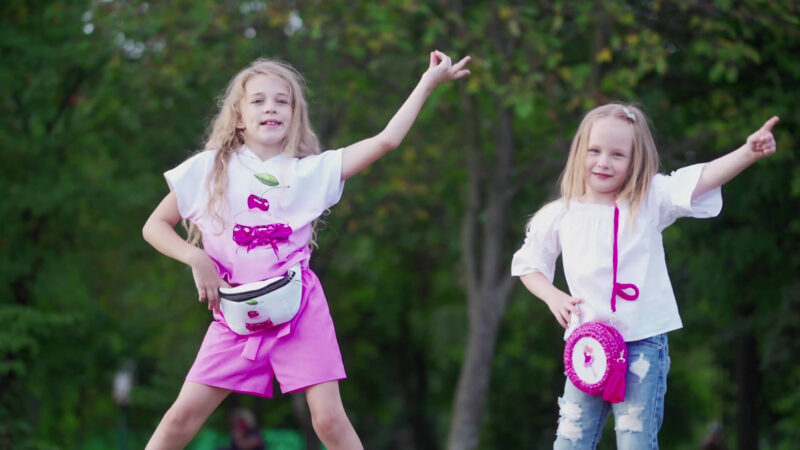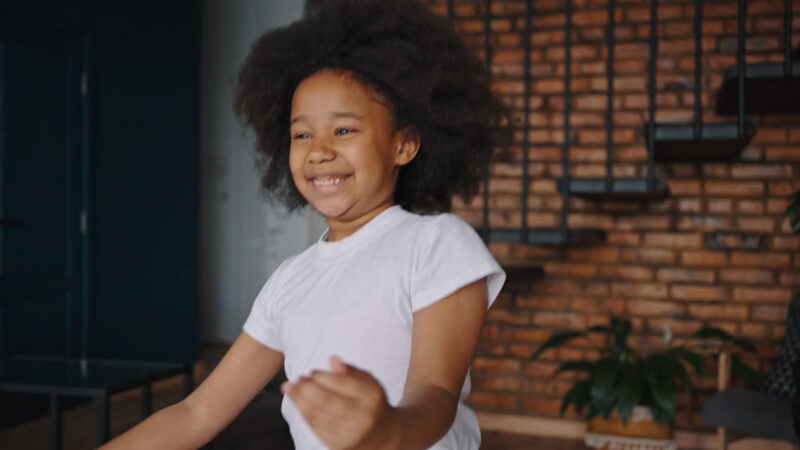Imagine a world where the playful rhythms and simple stories of nursery rhymes don’t exist. It’s hard to picture childhood without them, right? These songs are a fundamental part of early childhood education.
In this article, we’ll explore ten compelling reasons why nursery rhymes are essential for kids, illuminating their impact on development and learning.
Benefits of These Songs
1. Language Development

Nursery rhymes are like a child’s first playful dance with words. They’re not just a bunch of catchy tunes; they’re a gateway to the world of language. Through rhymes, kids get a feel for the music in words, their sounds, and rhythms. This isn’t just fun – it’s a brain-building exercise.
Rhymes boost phonemic awareness, a fancy way of saying kids get better at picking up different sounds in words, a must-have skill for reading. Think of it like a workout for the ears, prepping little ones for a lifetime of listening and learning.
2. Enhancing Cognitive Skills
Let’s talk about brainpower. Nursery rhymes are like mini puzzles, filled with numbers, sequences, and patterns. Ever noticed how kids can’t get enough of ‘One, Two, Buckle My Shoe’? That’s them getting a head start on math and science basics without even knowing it.
By singing about ten little monkeys or five little ducks, kids are doing more than just enjoying a song; they’re learning to think logically. It’s a sneak peek into the world of numbers and order, wrapped up in catchy tunes.
3. Boosting Memory and Recall
Remember when you couldn’t get ‘Baa Baa Black Sheep’ out of your head? That’s the magic of nursery rhymes. Their catchy, repetitive nature makes them stick in our minds. For kids, this is like lifting weights for their memory muscles.
Each time they recall ‘Humpty Dumpty’ or ‘Jack and Jill’, they’re boosting their memory skills. It’s like a fun and musical version of memory training.
4. Developing Social Skills

Nursery rhymes are the unsung heroes of the playground. When kids gather and sing ‘Ring-a-Ring o’ Roses’ or ‘The Wheels on the Bus’, they’re doing more than just singing; they’re learning life’s big lessons.
Taking turns, working together, feeling for each other – these are the building blocks of social skills. It’s like a mini society where everyone learns to live, laugh, and play together.
5. Emotional Development
Ever watched a kid act out ‘Little Miss Muffet’? It’s not just adorable; it’s a journey through emotions. Nursery rhymes let kids play in different scenarios, helping them understand and express feelings. They’re like mini-dramas where kids get to wear different emotional hats, learning to deal with fear, joy, surprise, and more.
It’s a safe space for them to explore the big, wide world of feelings.
6. Physical Development

Nursery rhymes often come with actions – think ‘Itsy Bitsy Spider’ climbing up the water spout. These aren’t just cute gestures; they’re crucial for kids’ physical development. Clapping, jumping, twirling – these movements improve motor skills and coordination.
It’s like a mini workout, camouflaged as fun, helping little bodies grow strong and agile.
7. Cultural Awareness
Nursery rhymes are like a colorful tapestry of cultures. They’re often passed down through generations, carrying the essence of different traditions and values. Through ‘Old MacDonald’ or ‘London Bridge’, kids get a glimpse of diverse cultures and histories.
It’s their first step towards understanding and respecting the wide, diverse world they’re a part of.
8. Encouraging Creativity and Imagination

Nursery rhymes are a ticket to imaginary lands. With tales of cows jumping over moons and dishes running away with spoons, they spark creativity and imagination. They open a world where anything is possible, encouraging kids to dream and think outside the box. It’s like fueling their brains with the power of ‘what if’.
9. Teaching Rhythm and Music
Nursery rhymes are a child’s first concert. The beats and tunes in ‘Twinkle Twinkle Little Star‘ or ‘Row, Row, Row Your Boat’ are more than just catchy; they’re a foundation for a lifelong love of music.
They teach kids about rhythm and melody, sometimes even inspiring future musicians. It’s like planting a seed of musical joy that can grow for a lifetime.
10. Last but Not Least – Bonding Time ❤️
There’s something special about a bedtime routine with nursery rhymes. They’re not just lullabies; they’re moments of bonding and comfort. As parents and caregivers recite ‘Rock-a-bye Baby’ or ‘Hush Little Baby’, they’re creating a cozy, loving environment.
It’s a time when worries fade, and the world feels safe and warm. It’s these moments that create love and security in a child’s life.
FAQs
Can nursery rhymes help children who are bilingual or learning a new language?
Absolutely! These songs are fantastic for bilingual children or those learning a new language. They provide simple, repetitive, and rhythmic language patterns that help in grasping the sounds and structures of the new language.
This makes language learning more fun and less intimidating.
Are there any benefits to making up our own nursery rhymes at home?
Creating your own nursery rhymes is not only fun but also stimulates creativity and bonding. When you make up rhymes with your children, you encourage them to use their imagination, improve their language skills, and it’s a great way to spend quality time together. Plus, personalized rhymes can be more relatable and memorable for your child.
How can nursery rhymes aid in teaching children about diversity and inclusion?
Nursery rhymes from different cultures are a wonderful tool to teach diversity and inclusion. By exposing children to rhymes from around the world, you introduce them to different languages, customs, and stories, fostering an appreciation and understanding of diverse cultures from a young age.
Is there an ideal age to start introducing nursery rhymes to children?
It’s never too early to start! Even infants can benefit from hearing the rhythmic and melodic patterns of these songs. As children grow, these rhymes continue to support their language, cognitive, and emotional development. The earlier you start, the more benefits they will reap.
Do nursery rhymes have any impact on a child’s ability to learn other types of music later on?
Yes, they do! Early exposure to the rhythm and melody in these songs sets a foundation for musical understanding. This can make it easier for children to learn instruments and grasp complex musical concepts later in life, as they already have a basic understanding of rhythm and sound patterns.
Can nursery rhymes be used to support children with special educational needs?
Definitely. They can be particularly beneficial for children with special educational needs. They offer a multi-sensory experience that can aid in language development, memory, and motor skills.
Additionally, the repetitive and predictable nature of rhymes can be comforting and engaging for these children, helping them learn in a way that suits their needs.
Final Thoughts
Nursery rhymes are a valuable educational tool. They lay the foundation for language and cognitive skills, foster social and emotional development, improve physical coordination, enhance creativity, and build cultural awareness. They also offer a unique way for children to bond with those around them.
Therefore, make sure your little ones have the opportunity to enjoy these songs!
